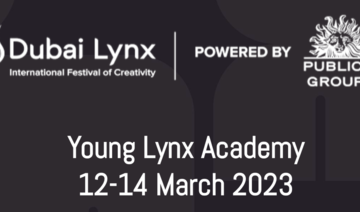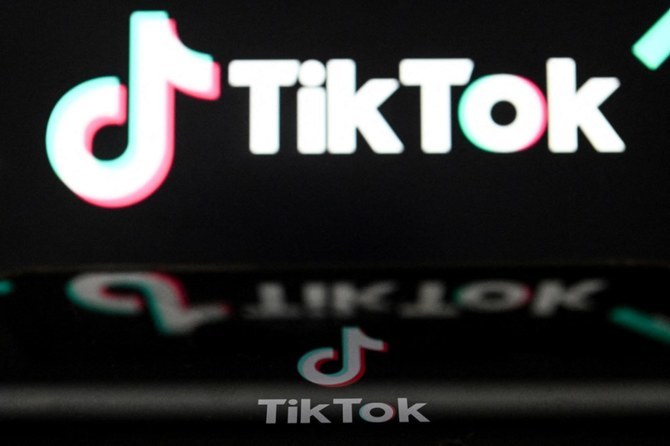DUBAI: In the course of the last decade, social media platforms have evolved from being communication networks into an integral part of nearly every aspect of daily life.
Online platforms have generated an influencer marketing industry that is currently worth an estimated $8 billion globally.
The practice of using influencers to promote a product or service on social media has come to dominate the marketing industry, creating a ripple effect on consumer choices.
Celebrities, artists, experts and aspiring influencers can be found in fields ranging from food and travel to fashion and beauty, leveraging the power of “likes” and a massive following to promote products in return for fees.
All this raises questions with potentially profound implications for society: Is social media influencing more than just purchasing decisions? More worryingly, has it become a contributing factor in the rise in mental health cases around the world?
Important light has been shed on the subject by the findings of the fourth edition of the “Social Media Influencers’ Survey,” and a panel discussion held during the release of the report recently in Dubai.
Brands are projected to spend up to $15 billion on influencer marketing by 2022, with one in three people in the world already known to be using social media.
Platforms such as Facebook, Instagram, Snapchat, YouTube and Twitter have been ranked as some of the most popular forms of social media.
These trends are no different when it comes to the Gulf Cooperation Council (GCC) region.
About 85 percent of millennials in Saudi Arabia and the UAE follow at least one social media influencer, and “entertainment” is ranked as the most followed category (94 percent) on these platforms, according to the survey, which was conducted jointly by the BPG Group and YouGov.
The poll questioned 1,000 Emirati and Saudi residents, aged 18 to 35, to highlight consumer views on social media influencers.
The results showed that 59 percent of users were less likely to trust an influencer’s review if they had been paid to advertise it and 73 percent could tell if the content was paid for.
Discussing the findings of the survey, Taghreed Oraibi, a BPG Group business director, said social media consumption trends were similar in Saudi Arabia and the UAE.
The survey found that 73 percent of respondents had purchased from a brand or tried a service mentioned by an influencer.
About 79 percent of respondents in the two GCC countries said they had unfollowed several social media influencers due to their increased promotional content and disagreement with their values and ethics.
However, Oraibi confirmed that influencers who deal in relevant content continue to have a strong following, retaining customer trust and impacting purchasing decisions.
“Brands and agencies alike are following international and local regulations and guidelines in a step to support authorities regulate influencer marketing and increase content transparency to protect consumers,” she said.
Summing up the survey’s findings, Arif Ladhabhoy, a BPG Group business director, said it “confirms that content is the key factor driving consumers to follow influencers. Brands and influencers have to invest in developing content that resonates and connects with consumers.”
That being said, sponsored content and posts are not the only way social media platforms are influencing consumers.
Numerous studies have shown that excessive time spent surfing social media channels can have a negative impact on self-esteem, attention span, human connection, memory, sleep and overall mental health.
Dr. Saliha Afridi, clinical psychologist at Lighthouse Arabia in Dubai, says the increasing number of people immersing themselves in the world of social media is “more dangerous than a regular addiction.”
She believes the world is living in an “attention economy” — one where technology experts are treating human attention as a scarce commodity and therefore altering their approach to information management.
“Social media platforms are based on different algorithms made by coders in Silicon Valley who are using them to get more people addicted to these apps,” said Afridi.
Websites known as “dopamine labs” use technology to predict patterns of human behavior. Based on the results, smartphone apps are altered through sophisticated algorithms that increase potential user engagement and deliver addictive power.
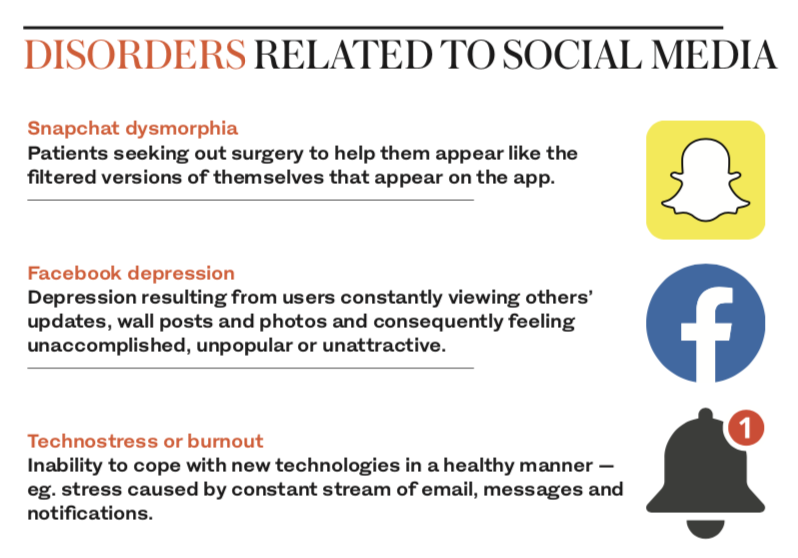
“Many people ask how social media apps play into addiction,” Afridi said, adding “they don’t — they are the addiction.”
The trend of social media influencers is only adding to the problem, according to her.
Users are following more profiles and increasingly interacting with live videos, comments and shares, ultimately spending hours on end staring at a screen.
Afridi believes social media apps are “conditioning people” through recommended posts.
“When it comes to children, the consequences are even worse. Frequent exposure to social media can hinder a child’s inclination to explore different parts of their personality,” she said.
“This results in an identity crisis that appears way before their adolescent years, which are intended for identity formation.”
Many young consumers of social media are also likely to lose out on the natural process of identity-building through socializing with people in the communities around them.
Social media platforms that reflect stereotypical ideas around self-image, fame and happiness can also promote a distorted notion of life for children at a vulnerable age. Even worse, the harsh reality of online communication can severely damage a young person’s self-esteem, Afridi said.
“When asked what do you want to be when you grow up, many children today will reply ‘rich, famous and thin,’” said Afridi, who calls social media “one big crazy experiment.”
Many consumers have fallen into the trap of accessing different aspects of their lives through feedback in the form of “likes, comments and posts,” she said.
The BPG Group-YouGov survey confirms that social media influencers are increasingly shaping the daily decisions of many consumers.
In Saudi Arabia and the UAE, 78 percent of users said they followed a brand on social media after seeing it in an influencer’s post.
Another 71 percent said they dined at a restaurant mentioned by an influencer, and 54 percent said they travelled to a destination based on an influencer’s recommendations.
The power that influencers have over their consumers plays on the basic human instinct that pushes people to listen to those they admire, said Afridi, adding that “the more relatable and authentic a person is, the more influence they will have over you.”
Many people will also listen to individuals who appear as experts in a specific field and who “hold a sense of authority,” she said. This can include anyone from a well-known chef, a model or a health care promoter, to a micro-influencer and even a trending teenage personality.”
The social purpose theory, which states that “if more people like something, then you’re more likely to like it too,” can also explain the influence of social media.
Afridi sounded a strong warning about the introduction of artificial intelligence and the virtual world into our daily lives.
“This takes the problem to another level,” she said, adding that many people were already losing their ability to communicate and relate to the “real world.”
In a virtual world, an individual’s mindset may change as it begins to believe that virtual beings do not having feelings or feel pain, and anything can be said to them. Such behavior can translate into the real world, “desensitizing” people to events happening around them.
“Today we see a rise in narcissistic traits and autistic traits, where more people are not able to converse with humans or maintain relationships with each other,” said Afridi, referring to afflictions like Snapchat dysmorphia, Facebook depression and Techno burnout.
“This is going to be a serious issue for this generation and future generations. The worrying thing is that no one is really conscious of it.”






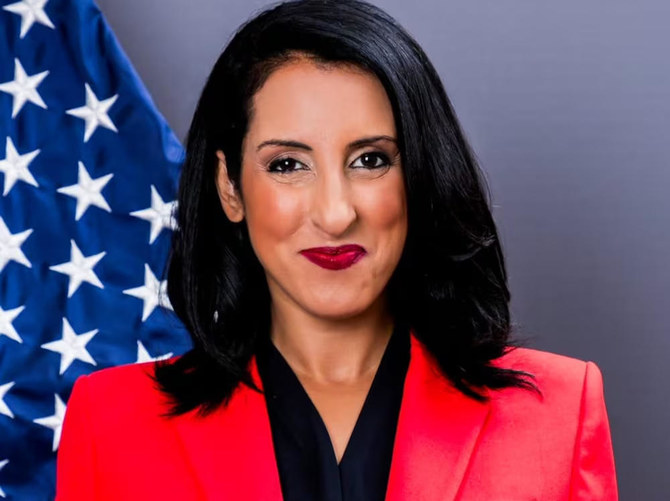
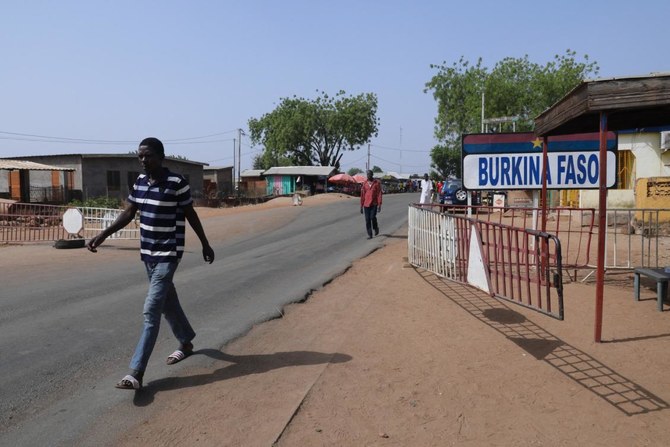


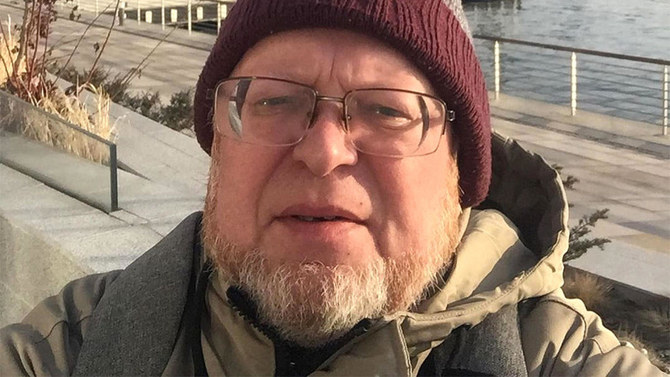
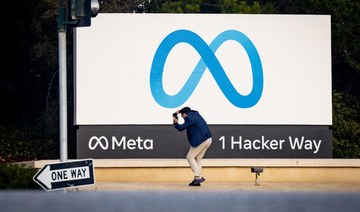

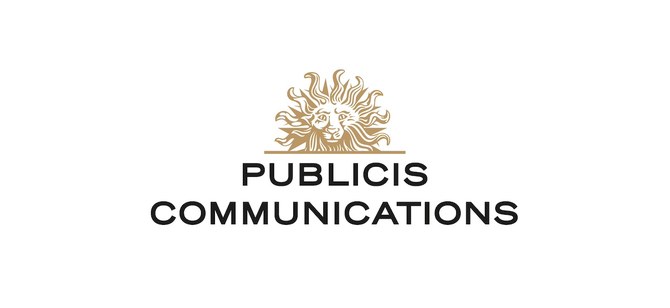
 Baraja brought with him 22 years of global advertising and brand-building experience.
Baraja brought with him 22 years of global advertising and brand-building experience.
